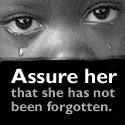An activity
that my husband, Fred, and I love is to hike. We’ve had the opportunity to hike
short stretches of the Appalachian Trail, which stretches from Georgia to Maine
(I’ve also done a few stints with my friend, Kim). One of our goals is to do a
thru-hike, hiking the length of the Trail in its entirety at one time. When I
learned about the blog tour for ‘Hiking Through: One Man’s Journey to Peace andFreedom on the Appalachian Trail’ by Paul Stutzman, I knew I wanted to join in!
Here is the
synopsis of this book:
A
life-changing journey begins with a single step. After Paul Stutzman lost his
wife to breast cancer, he sensed a tug on his heart – the call to a challenge,
the call to pursue a dream. With a mixture of dread and determination, Paul
left his job, traveled to Georgia, and took his first steps on the Appalachian
Trail. What he learned during the next four and a half months changed his life
– and can change yours as well.
In
Hiking Through, you’ll join Paul on
his remarkable 2,176-mile trip through fourteen states in search of peace and a
renewed sense of purpose. Along the way, you’ll meet fascinating an funny
people, experience “trail magic,” and discover that every choice we make on the
path has consequences for the journey. More than that, you’ll come away with a
new understanding of God’s grace and guidance – even in the smallest things.
Here is the
biography of the author:
Paul Stutzman is a restaurant-manager-turned-captivating-storyteller
who left his career after his wife’s death from breast cancer. His passion and
mission is to share what he learned on his thru-hike of the Appalachian Trail.
When he is not hiking or biking cross-country, he makes his home in Ohio.
Here is
Paul being interviewed about his book:
In his book, Paul describes a thru-hike this way:
Every
year, several thousand believers answer the call to make a pilgrimage from
Springer Mountain, Georgia, to another mountaintop 2,176 miles away. Of these
thousands, only several hundred are chosen to finish.
Chosen?
Yes. If you are one of those solitary Appalachian Trail thru-hikers and you
somehow survive three hundred daunting mountains, precarious river crossings,
difficult rock climbs, discouraging illness and loneliness, and punishing
weather, and you stand at last at the summit of mighty Mt. Katahdin, then you
will indeed know what it is to be one of those chosen few.
You
are then forever part of the brotherhood and sisterhood of the AT. Whether you
are God-fearing, agnostic, or atheist, you are irrevocably changed. Some of the
changed are better equipped to deal with society; some never find a place to
fit. Only your trail brothers and sisters will understand the transformation
within you. As much as you want friends and family to know how and why you have
changed so dramatically, you cannot describe where your wilderness journey has
taken you. (pp. 33-34)
I loved the
sections of the book where Paul is hiking through areas where I have been
before; one of them was Roan Mountain, in Tennessee (where Fred and I had our
honeymoon in 2005):
…Roan
Mountain rises over 6,000 feet, and we had heard much about the difficulty of
summiting this mountain.
Roan
Mountain exceeded its reputation. Two peaks of the mountain rise to th west,
and three grassy balds stretch over seven miles on the east. Carvers Gap sits
between these two parts of the mountain.
We
climbed for several “endless hours,” as I later wrote in my journal. This was a
climb, not just a casual uphill walk.
I struggled over rocks, grabbing tree roots on the steep trail to pull myself
upward, my lungs protesting and aching for a rest. I talked to my body, trying
to push it upward. Okay, leg, step onto
that mass of root. Now, other leg, get yourself up over that rock. C’mon, body,
get up there with the feet. The climb was harder than anything I’d ever
imagined in my daydreams of the AT. And the thirty-five pounds on my back
seemed to have doubled its weight, conspiring with the mountain to keep me from
making the summit. (p. 118)
Sounds
familiar, aside from the 35 pound backpack (not necessary for a day hike)!
Paul shared
some valuable advice in his book, sharing a conversation he had with his wife,
Mary:
Forgiveness and love; words that can soothe and heal a troubled soul. You, my
reader, might also have some powerful words that need to be spoken. Don’t put
it off; you may have less time than you realize. Take it from someone with
experience; words do have meaning. (p. 130)
I love how
he allowed the Lord to change him through this experience:
On
the trail, I was shedding not only the stresses of my business life, but also
all the distractions that had kept me from truly seeing myself, others, and
this hike we call Life. I was learning to see what I saw. God had said He would
meet me on the trail. Experiences and people that in my everyday world would
have passed unnoticed now carried messages I was able to hear. I finally had
time to listen and learn. (p. 168)
One other section
of the book covered an area that was familiar to me. When my friend, Kim, and
I, vacationed on Skyline Drive and the Blue Ridge Parkway, we stayed at the
Bears Den Hostel, in Bluemont, Virginia; so did Paul:
The
Bears Den Hostel was one of the most comfortable and elegant on my entire hike.
The building is a Tudor-style stone mansion, built in 1933 by local
stonemasons, and formerly the home of a Washington, DC, doctor and his opera
singer wife. Now the mansion-turned-hostel offers accommodations for twenty-six
wayfarers. I left reluctantly in the morning. (p. 183)
I was
inspired by how he closed out his book:
You
see, there truly are two pathways in this life. One is the path to destruction
and everlasting death. The other is the path that leads to eternal life with
God in a place called heaven. These paths run somewhat parallel to each other
in our earthly life; however, there is the problem of crossing from one path to
the other. Don’t look back. You cannot change what is behind you. To change
your path and change your life, you’ll need a bridge. You’re at that bridge
now. The cross of Jesus can take you from the path of death to the path of
life. The cross, that great symbol of Christianity, beckons you to give up
whatever is keeping you on the wrong path. Cross the bridge, and find a peace
you’ve never imagined and a journey with God that is indescribable.
Nailed
to a cross, Jesus paid a great price for your life. Choose wisely, my friend.
You can mock that cross if you wish, or you can say, God, forgive me. Words do have meaning. (p. 330)
I really
was inspired by this book! I love the fact that Paul started life in the Amish
tradition, and then switched to the Mennonite faith; I’ve always been
fascinated with both. I intend to keep this book as reference for the time
(hopefully within the next few years) when Fred and I prepare for our
thru-hike. I thank Paul for being obedient to the Lord’s lead in his life to
allow him to complete this amazing task – and to share this amazing book with
the rest of us! I appreciate all of the research he put into the preparation
for his hike; we will, in the future, be following in his footsteps to see a
lot of the highlights he shared in this wonderful book!
Available May 2012 at your favorite bookseller from
Revell, a division of Baker Publishing Group. This book was provided by
Revell for review purposes.






























.jpg)







No comments:
Post a Comment